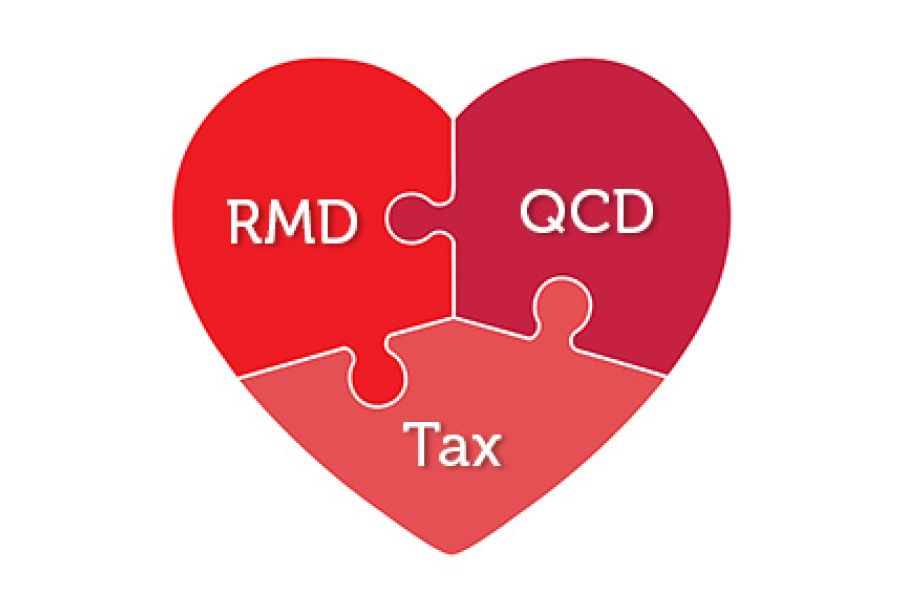Navigating the complexities of tax law can be difficult, especially when faced with an unexpected tax bill due to the errors of a spouse or ex-spouse. The reason for such a bill has to do with the concept of “joint and several” liability. When a married couple files a joint tax return, each spouse is liable for the full amount of tax on the couple’s combined income. Therefore, the IRS can come after either spouse to collect the entire tax — not just the part that’s attributed to one spouse or the other. This includes any tax deficiency that the IRS assesses after an audit, as well as any penalties and interest. There may be relief In some cases, spouses are eligible for “innocent spouse relief.” This...

Federal estimated tax payments are designed to ensure that certain individuals pay their fair share of taxes throughout the year. If you don’t have enough federal tax withheld from your paychecks and other payments, you may have to make estimated tax payments. This is the case if you receive interest, dividends, self-employment income, capital gains, a pension or other income that’s not covered by withholding. Individuals must pay 25% of a “required annual payment” by April 15, June 15, September 15, and January 15 of the following year, to avoid an underpayment penalty. If one of those dates falls on a weekend or holiday, the payment is due on the next business day. So the third installment for 2024 is due on Monday, September 16 because the...
Many Americans receive disability income. Are you one of them, or will you soon be? If so, you may ask: Is the income taxed and if it is, how? It depends on the type of disability benefit and your overall income. The key issue is: Who paid for the benefit? If the income is paid directly to you by your employer, it’s taxable to you just as your ordinary salary would be. (Taxable benefits are also subject to federal income tax withholding. However, depending on the employer’s disability plan, in some cases they aren’t subject to Social Security tax.) Frequently, the payments aren’t made by an employer but by an insurance company under a policy providing disability coverage. In other cases, they’re made under an arrangement having...
Savings bonds are purchased by many Americans, often as a way to help fund college or show their patriotism. Series EE bonds, which replaced Series E bonds, were first issued in 1980. From 2001 to 2011, they were designated as “Patriot Bonds” as a way for Americans “to express support for our nation’s anti-terrorism efforts,” according to the U.S. Treasury Department. Perhaps you purchased some Series EE bonds many years ago and put them in a file cabinet or safe deposit box. Or maybe you bought them electronically and don’t think about them often. You may wonder: How is the interest you earn on EE bonds taxed? And if they reach final maturity, what steps do you need to take to ensure there’s no loss of...
Divorce entails difficult personal issues, and taxes are probably the farthest thing from your mind. However, several tax concerns may need to be addressed to ensure that taxes are kept to a minimum and that important tax-related decisions are properly made. Here are six issues to be aware of if you’re in the process of getting a divorce. 1. Personal residence sale In general, if a couple sells their home in connection with a divorce or legal separation, they should be able to avoid tax on up to $500,000 of gain (as long as they’ve owned and used the home as their principal residence for two of the previous five years). If one former spouse continues to live in the home and the other moves out (but...
The current estate tax exemption amount ($13.61 million in 2024) has led many people to feel they no longer need to be concerned about federal estate tax. Before 2011, a much smaller exemption resulted in many people with more modest estates attempting to avoid it. But since many estates won’t currently be subject to estate tax, it’s a good time to devote more planning to income tax saving for your heirs. Important: Keep in mind that the federal estate tax exclusion amount is scheduled to sunset at the end of 2025. Beginning on January 1, 2026, the amount is due to be reduced to $5 million, adjusted for inflation. Of course, Congress could act to extend the higher amount or institute a new amount. Here are some strategies...
If you’re a philanthropic individual who is also obligated to take required minimum distributions (RMDs) from a traditional IRA, you may want to consider a tax-saving strategy. It involves making a qualified charitable distribution (QCD). How it works To reap the possible tax advantages of a QCD, you make a cash donation to an IRS-approved charity out of your IRA. This method of transferring IRA assets to charity leverages the QCD provision that allows IRA owners who are age 70½ or older to direct up to $105,000 of their IRA distributions to charity in 2024. (For married couples, each spouse can make QCDs for a possible total of $210,000.) When making QCDs, the money given to charity counts toward your RMDs but doesn’t increase your adjusted gross...
Buckle up, America: Major tax changes are on the horizon. The reason has to do with tax law and the upcoming elections. Our current situation The Tax Cuts and Jobs Act (TCJA), which generally took effect in 2018, made sweeping changes. Many of its provisions are set to expire on December 31, 2025. With this date getting closer each day, you may wonder how your federal tax bill will be affected in 2026. The answer isn’t clear because the outcome of this November’s presidential and congressional elections is expected to affect the fate of many expiring provisions. A new political landscape in Washington could also mean other tax law changes. Corporate vs. individual taxes The TCJA cut the maximum corporate tax rate from 35% to 21%. It also lowered rates...
Employees, self-employed individuals and employers all pay Social Security tax, and the amounts can get bigger every year. And yet, many people don’t fully understand the Social Security tax they pay. If you’re an employee If you’re an employee, your wages are hit with the 12.4% Social Security tax up to the annual wage ceiling. Half of the Social Security tax bill (6.2%) is withheld from your paychecks. The other half (also 6.2%) is paid by your employer, so you never actually see it. Unless you understand how the Social Security tax works and closely examine your pay statements, you may be blissfully unaware of the size of the tax. It’s potentially a lot! The Social Security tax wage ceiling for 2024 is $168,600 (up from $160,200 for...
Do you invest in mutual funds or are you interested in putting some money into them? If so, you’re part of a large group. According to the Investment Company Institute, 116 million individual U.S. investors owned mutual funds in 2023. But despite their widespread use, the tax rules involved in selling mutual fund shares can be complex. Review the basic rules Let’s say you sell appreciated mutual fund shares that you’ve owned for more than one year. The resulting profit will be a long-term capital gain. As such, the maximum federal income tax rate will be 20%, and you may also owe the 3.8% net investment income tax. However, most taxpayers will pay a tax rate of only 15% and some may even qualify for a 0%...











